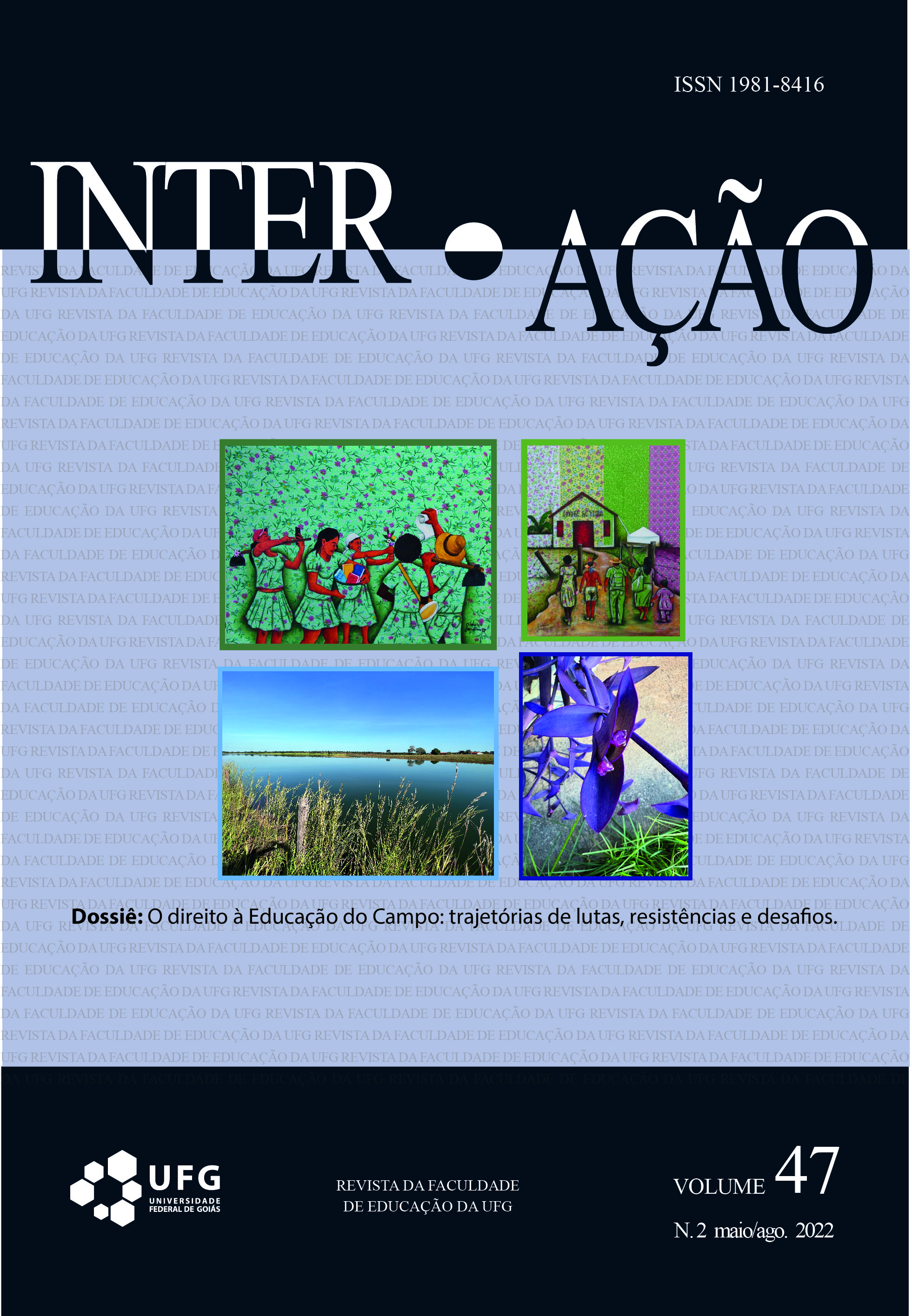PEDAGOGICAL RESIDENCE IN COUNTRYSIDE EDUCATION: REFLECTIONS ON EDUCATIONAL ACTIONS IN COVID-19 TIMES
DOI:
https://doi.org/10.5216/ia.v47i2.72171Abstract
This article was elaborated with the objective of exposing the challenges in the operationalization of the subproject education of the field of the Pedagogical Residence Program (PRP) of the Federal University of Grande Dourados (UFGD), as well as to describe about the paths that made it possible to effect this public training policy of teachers in the peasant and indigenous territories located in the state of Mato Grosso do Sul during the pandemic context by Covid-19. The PRP Leduc took place between October 2020 and March 2022, involving 24 undergraduate scholarships (the residents), coming from the qualifications in Humanities and Nature Sciences, three teachers from the public schools of Basic Education (the preceptors) and two Teachers at UFGD, crowded at the Indigenous Intercultural College (the Subproject Area Coordinators). For a greater understanding of this formative process, the methodology of this article has been structured in a qualitative perspective with the application of semi -structured questionnaires to scholars and preceptors, serving as the basis for the evaluation of difficulties/advances in the development of planned actions. Still within the qualitative techniques, the focus groups approach was used in order to understand the experiences that the participants experienced in the program, from an interdisciplinary and intercultural academic training, carried out through remote activities, mediated by digital tools in almost the entire period of development of the PRP, and by face-to-face activities, in the last module of the program, in which students were inserted in the partner schools of basic education through the Teaching in the classroom.
KEYWORDS: Rural Schools. Intercultural Education. Peasant and Indigenous Territories of MS. Pedagogical Residency Program.
Downloads
Published
How to Cite
Issue
Section
License
Copyright (c) 2022 Jeanne Mariel Brito de Moura Maciel, Andréia Sangalli

This work is licensed under a Creative Commons Attribution-NonCommercial 4.0 International License.
Inter-Ação uses the Creative Commons Attribution 4.0 License for Open Access Journals (Open Archives Initiative - OAI) as the basis for the transfer of rights. Open access means making documents available on the Internet free of charge, so that users can read, download, copy, distribute, print, search, or link to the full text of documents, process them for indexing, use them as input data for software programs, or use them for any other lawful purpose, without financial, legal, or technical barriers.
Authors publishing in this journal agree to the following conditions:
1) Authors retain copyright and grant the journal the right of first publication, with the work simultaneously licensed under the Creative Commons Attribution License, which permits redistribution of the work with attribution and first publication in this journal.
2) Authors are permitted to enter into additional, separate agreements for non-exclusive distribution of the version of the work published in this journal (e.g., for publication in an institutional repository or as a book chapter), with attribution and first publication in this journal.
3) Authors are permitted and encouraged to publish and distribute their work online (e.g. in institutional repositories or on their home page) at any time before or during the editorial process, as this may generate productive changes as well as increase the impact and citation of the published work.















